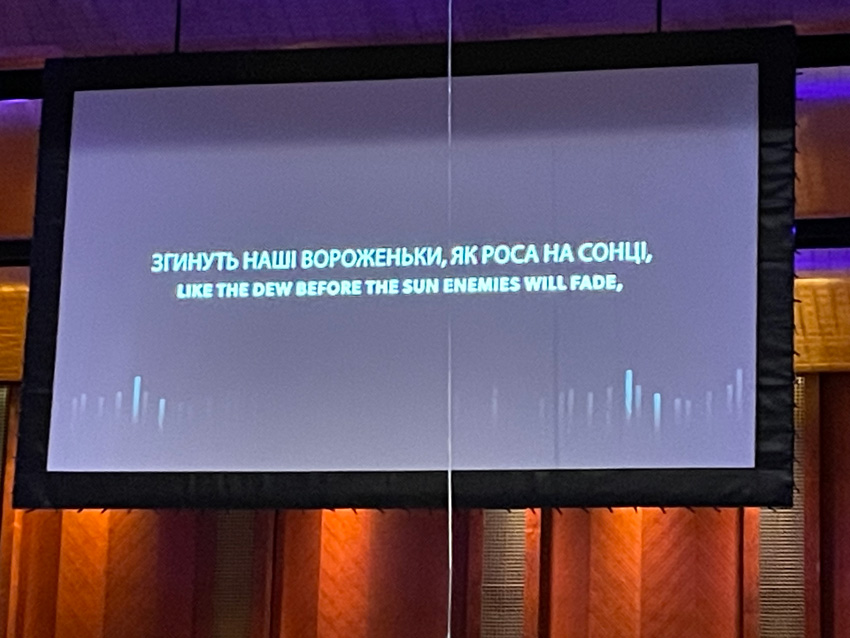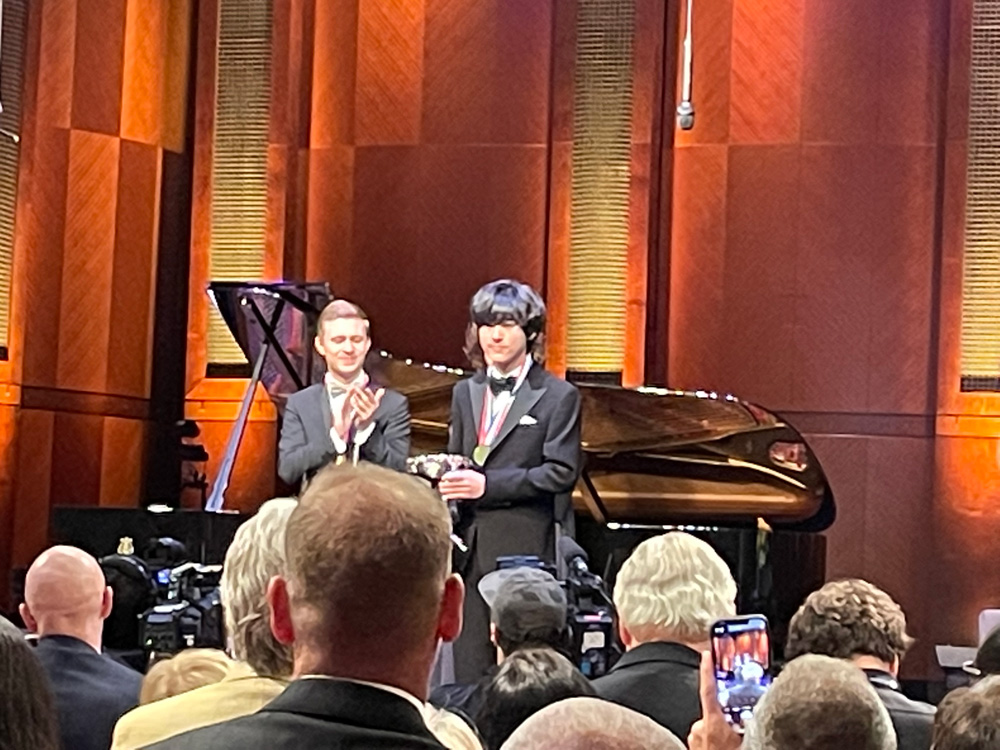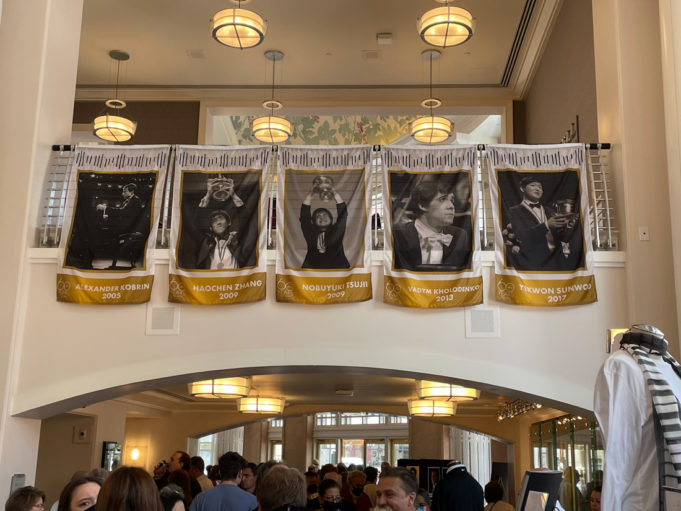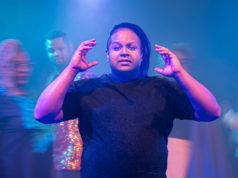Here I was, ready to unleash all my spleen at the Van Cliburn International Piano Competition for inviting Russian and Belarusian pianists to compete without any acknowledgment beyond a flimsy press release that those countries had invaded Ukraine. Then, just before the awards ceremony that concluded the contest, Vadym Kholodenko, the Ukrainian pianist and gold medalist from the 2013 competition, took the stage and played the Ukrainian national anthem while a screen above him displayed the lyrics in Cyrillic script as well as an English translation.
All right, fine. This article won’t be so splenetic because the organizers demonstrated they weren’t completely oblivious. You can’t keep culture sealed off from the outside world unless you’re in a dictatorship. And yet I couldn’t help feeling that much of the preceding 16 days of piano performances had been ruled by the whole idea that music transcends all boundaries. Bullshit. To begin with, there are multiple rich traditions of Indian classical music that the Van Cliburn does not address. (Why East Asians have embraced Western music while South Asians have not is a topic for someone with broader expertise than me.)

PHOTO BY KRISTIAN LIN
More to the point, contestants in the current edition of the Cliburn hailed from countries on both sides of the conflict in Eastern Europe. It was impossible for them to ignore, yet it was still possible for us to ignore it when we walked the halls of the new Van Cliburn Concert Hall at TCU and Bass Performance Hall. Since 2001, the first time Bass Hall hosted the competition, the venue’s lobby has been decorated with the flags of the countries that the various pianists represented. This year, the lobby instead sported banners with photos of the competition’s previous gold medalists. While clearly the banners had been commissioned prior to the Russian invasion in March, it still seemed like an attempt by the competition to help the audience shut their ears to the war. I mean, even some of this paper’s coverage seemed like an attempt at musicwashing. Our cover story for June 1 was headlined “A Message of Unity.” Do we want unity with the people bombing churches and children’s hospitals? I shouted, “Slava Ukraini!” for competitor Dmytro Choni because I wanted him to know someone in that audience was thinking about the people having the bombs dropped on them because some autocrat with a Napoleon complex decides their country is rightfully his. (Also, I felt like being a bit of a disturbance.)
The New York Times reported that the Cliburn had privately advised its Russian and Belarusian contestants that any expressions of support for Vladimir Putin or his war of aggression would be grounds for disqualification and/or revocation of prizes. I’m glad that the competition shut off this possibility — a Russian pianist winning gold and then dedicating the victory to the effort to crush the Ukrainian people would have been a veritable PR nightmare for the Cliburn. Yet it was still disingenuous allowing the Russians in to begin with. Had Dmytro Choni won another gold for his native Ukraine, it would have meant something beyond the world of music. Had Clayton Stephenson become the first-ever Black medalist (on Juneteenth weekend, no less), it would have meant something, too. It’s naive in the extreme to pretend that a Russian lifting the trophy this year would have meant nothing or that it wouldn’t have been used by the state-controlled Russian press to bolster Putin and his war.
The international community showed its disapproval of the invasion by barring Russian athletes from competitions, severing ties with Putin-connected musicians and dancers, and resigning from jobs or canceling performances within Russia. The Van Cliburn had a chance to join them as the biggest piano competition in the world, and it would have been noticed because Vladimir Putin cares about the Cliburn the same way he cares about the Olympics and the World Cup as opportunities for his nation to shine on the world stage. Instead, our competition gave the dictator a free pass.
(People asked me if Chinese pianists should be disqualified because of that country’s human rights record. I say if China ever invades Taiwan, then — hell, yeah — kick out their musicians.)

PHOTO BY KRISTIAN LIN
I held all these thoughts in my head as I evaluated these players, some of whom I found wonderful and others less so. I would have liked spending this article talking about the excellent acoustics in Van Cliburn Concert Hall, Marin Alsop’s conducting and the great achievement of bringing her to town (during Pride Month, too), Clayton Stephenson making my wish come true of hearing Gershwin at this competition, and Lim Yun-chan winning a second straight gold for South Korea even though I think the kid is too green. Had there been no Russian pianists here, that’s exactly what this article would have done. Their presence prevented me from concentrating solely on the music, though I still endeavored to judge them on their own merits. I found Sergey Tanin, a Russian who was eliminated in the first round, a more interesting musician than many who moved on to later rounds.
We media types cover sports and arts and entertainment because they’re fun, but many of us also do it because it’s more rewarding than politics. Our colleagues in hard news mostly write up human failures while we mostly write about human achievements. Having said that, I don’t think it makes you a better critic or a better human being to shut out what the hard news people report. I appreciate that the Cliburn needed to avoid making its Russian and Belarusian competitors uncomfortable, but then, who invited those musicians in the first place? Too often it seemed like the Cliburn was trying to be this floating bubble where art was pure and the war couldn’t penetrate. It was possible to believe that when some of these pianists were playing. The problem is, at some point the music always stops.












Geez. Next time can Fort Worth Weekly find a blogger who is a little less bitter and cynical about the competition and can also focus their energies on actually recapping the event without inserting so much…hatred into their writing? Also one who can back up their opinions by actually referring to details about the artists’ performances instead of just dismissing the performers for seemingly no reason whatsoever.
Nice re-cap of the 2022 Cliburn experience. You might feel vindicated that music critic Cantrell of the DMN stated he would have chosen the three medalists, but not in the final round order, stating that Dmytro Choni should have been awarded first prize. I can’t disagree.
I really appreciate your in depth day to day review and mention of wonderful young artists, where ever they came from, who did not make the finals.